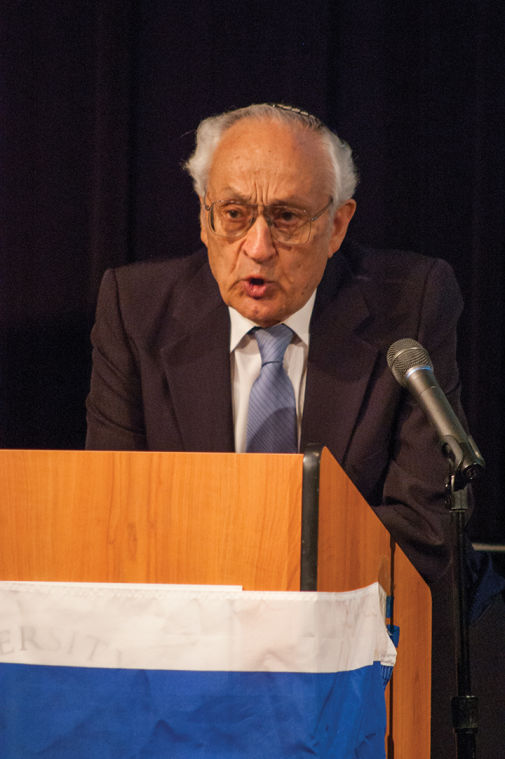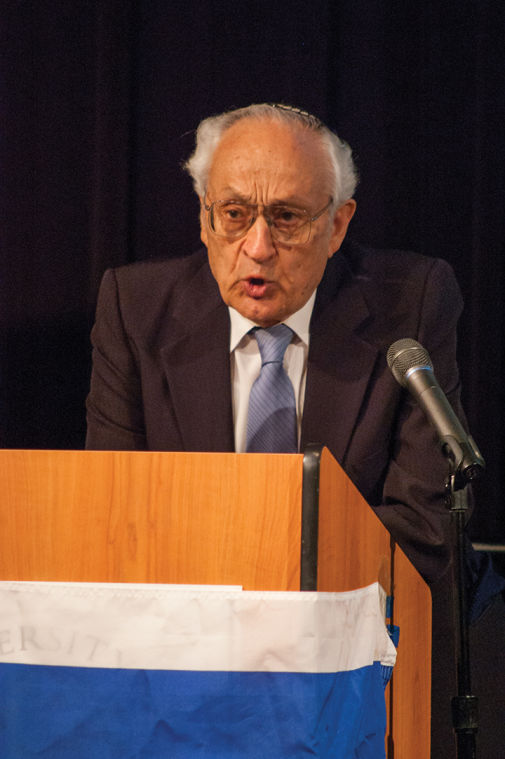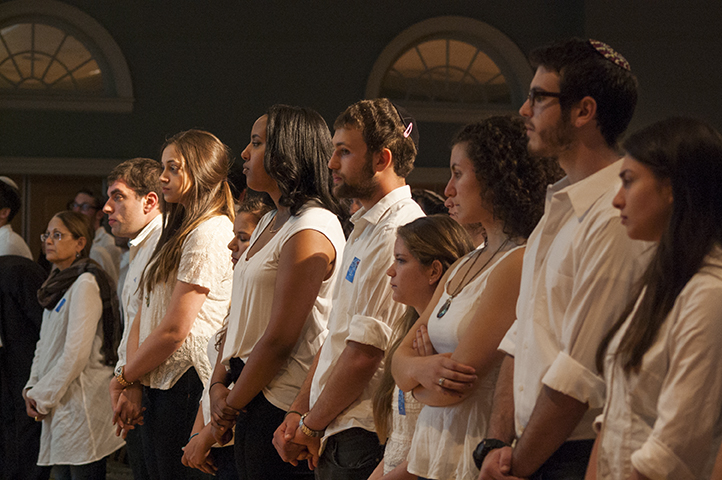Standing with a fellow solider in what is now Jerusalem’s Independence Park, Rabbi Amnon Haramati, awaited the attack of about 2,000 enemy soldiers as he stood post to protect the heart of Jerusalem during the 1948 Arab-Israeli War.
As a 17-year-old boy serving in the premature Israeli army, Haramati’s only forms of protection were a rifle, hand grenade and four bullets.
The enemy approached, and cannons fired. Days later, Haramati woke up in a morgue and learned he had suffered a major brain injury. He was told to give up his studies because he would never retain information again, but he persevered and continued his education in Israel. Six years later, he moved to New York to teach. He shared his story with about 125 people last night in the Colony Ballroom of Stamp Student Union during Hillel’s annual Yom Hazikaron ceremony.
“We live our life that whenever we do something for the Jewish nation, God will help us against any logical belief,” he said. “Because what is faith? Faith is illogical.”
After the war, Haramati taught at the Yeshiva of Flatbrush in Brooklyn, New York. He said his personal miracle was a sign that God would protect all those who serve to protect Israel.
“I have family in Israel who fought in the wars, but what he was saying about it being a miracle of biblical proportions or a miracle in the biblical sense was a really incredible message that I hadn’t heard before,” freshman physiology and neurobiology major Shir Kantor said.
Haramati is the grandfather of senior psychology major Natan Haramati. Natan Haramati said his grandfather’s story of bravery inspires him and instilled in him the belief that he can win and succeed despite any obstacles.
Senior marketing and supply chain management major Jonathan Matz said he also was impressed by Haramati’s speech.
“When Rabbi Haramati spoke, that was really touching because so often there is so much politics involved with Israel,” Matz said. “As someone who was there to talk about Israeli history and Israeli politics from a firsthand experience, it was something that was real, and it was intimate and it was personal. And I feel privileged to have watched it.”
Last night’s ceremony, which occurred on Israel’s memorial day, honored Israel’s fallen soldiers and victims of terror. Matz, who was born and raised in Israel, said he feels a close connection to the country and found the ceremony touching.
“It’s really beautiful to me, and it’s really important to me to remember that we are one nation and we are one family and taking parts in ceremonies that mimic what goes on in Israel is a huge critical part of that,” he said.
Shuki Eisdorfer, a freshman mechanical engineering major, said he appreciates the celebration of Israel’s soldiers on a college level. His older sister and two cousins serve in the Israel Defense Forces, and he hopes to join the Israeli army after graduation.
“College is really the place where you begin to define yourself, and when you define yourself, you have to keep in mind the reason you are able to keep being Jewish and not be afraid,” Eisdorfer said.
People stand while a prayer is read in Stamp Colony Ballroom last night.





